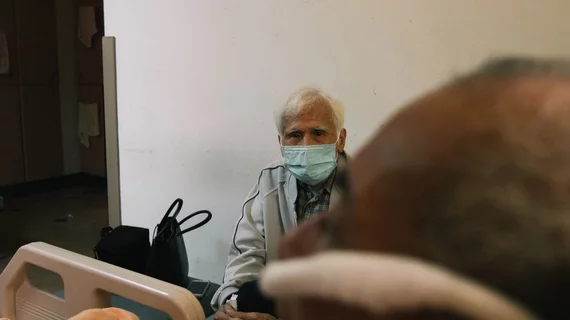AI powers early warning system for inpatients at risk of dying unexpectedly
It’s not unusual for hospitalized patients to take a sudden turn for the worse. A continuous inspection of electronic medical records by machine-learning algorithms can warn of impending trouble in real time, giving physicians a chance to proactively intervene.
A study describing the technique’s development went up July 5 in the Journal of Medical Internet Research.
Senior author Bruce Xuefeng Ling, PhD, of Stanford, and co-researchers used EMR data of more than 54,000 patients who were admitted to two acute-care hospitals in Massachusetts.
The team explored and compared various machine-learning methods, ultimately settling on a tree-based random forest model as the best predictor of in-hospital mortality.
In validating the model’s algorithms as a real-time alert system, they found the method accurately warned of death for the highest-risk 13.3% of patients at least 40.8 hours before the fact.
“These findings demonstrated that the proposed early warning system had powerful discriminative ability to help notify caregivers of inpatient death in the longitudinal scale and assist in clinical decision making,” the authors write.
They suggest their system will soon be adaptable as a means of surveilling inpatients’ health data in hospitals that would choose to integrate it.
The AI-based early warning system, they write, “could trigger an early notification for the patients at high risk of in-hospital mortality, thereby letting clinicians initiate intensive care before the acute event and provide a chance of individualized management to improve the quality of care.”
The study is available in full for free.

